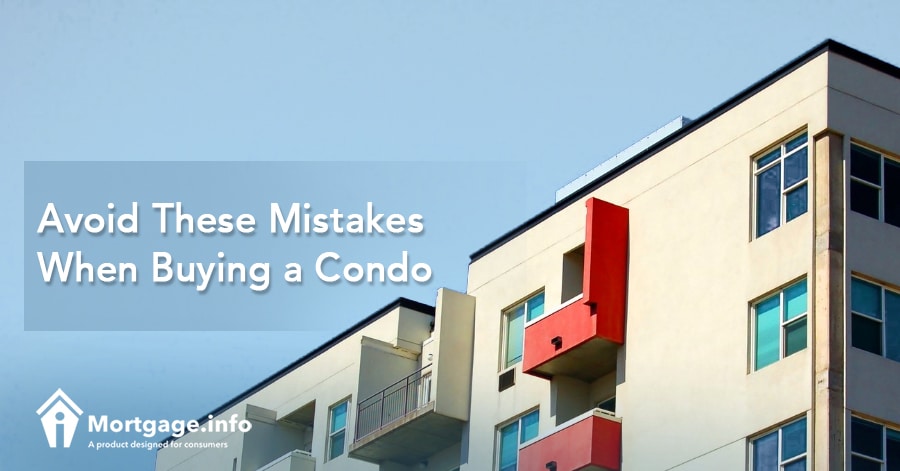Buying a condo may seem like a smart financial move. Whether it’s your first home or your tenth, it seems like it would save you money in the end. Sometimes it does. Other times, there are risks involved. In order to make sure you make a smart decision, learn the top mistakes you should avoid when buying a condominium.
Not Researching the Homeowner’s Association
When you buy a condo, you are reliant on the homeowner’s association. They manage the common areas and even govern the individual owners. A bad association could be bad news for condominium owners. Not checking out their reputation and financials is a big mistake.
Compare Offers from Several Mortgage Lenders.
Ask to see the HOA’s financials. Do they have a healthy reserve? Do they have a budget that they stick to? You should carefully evaluate these red flags.
Ask around about the HOA and how they maintain the property. Even just looking at it yourself you can get an idea of its condition. Do the areas look run down or well cared for? These answers can help you determine what you should do.
Lastly, you should inquire about any pending litigation against the HOA. This could prevent you from securing a mortgage. It could also pave the way for issues for you in the future. If the HOA has a bad reputation of caring for things and following through, you may want to look elsewhere.
Not Looking Into the Association’s Restrictions
Each association has rules and regulations pertaining to the common areas and the exterior of your property. Make sure you know these restrictions and determine if you can live with them. The restrictions will govern any areas outside of the interior of your unit, as that is the only part you own. They could govern how you conduct your life outside of your unit, so pay careful attention to it.
Click to See the Latest Mortgage Rates.
Not Looking Into the Parking Situation
If your condo does not have garage parking, make sure you inquire about the parking situation. How many parking spots do you get? Are they assigned or is it first-come-first-serve? These may seem like minute details, but not having enough parking or dedicated parking can turn into a logistical nightmare once you live there.
Not Determining The Ratio of Investors to Owners
Investors commonly purchase condos and rent them out to renters. While this might make them a profit, it hurts those that own the property and live in them. In fact, it’s often harder to get a mortgage on a condo if a majority of the units are investor-owned.
You can ask the homeowner’s association how many units are owner-occupied and how many are investor-owned. If there are too many investor-owned units, you might not be able to find financing. If you do, the rates could be significantly higher. In addition, you may run the risk of less appreciation in the future as rental properties often have a harder time appreciating just because of the normal wear and tear they experience.
Not Looking Into the Amenities
A large part of owning a condo is the amenities you get along with it. If you will use the common areas and want something specific, you have to look at it. For example, let’s say a condo’s description states there is a workout facility on the property. You love to work out so you think this is great. But, it turns out the facility is 2 treadmills in the basement of the clubhouse. If that’s not what you pictured, you might want to look elsewhere.
Remember, owners will write their property description to make the property look and sound amazing. It’s up to you to determine if this is really the case and if it meets your expectations.
Buying a condo can be a good financial move, especially if you don’t have the time to handle exterior maintenance yourself. But, you have to do your research. Just like buying a home, there are many factors that go into the process. Looking into everything yourself to make sure it’s like what the owner describes is crucial. Only you know what you want and what will make you happy. Taking the time to research is crucial.

